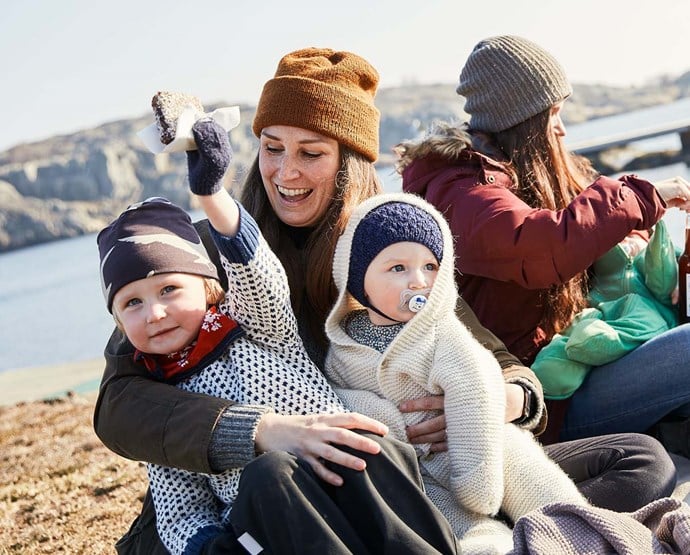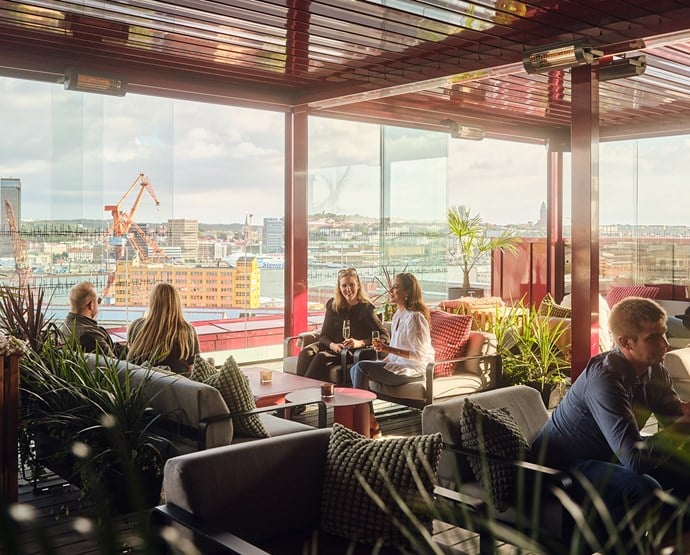
Real work-life balance - It's our way of life!
Real work-life balance isn’t an aspiration, it is a reality and a way of life for people in the Gothenburg region, West Sweden.
Here, society and workplaces are designed around the idea that if you live well and have time and space to disconnect outside of your work, spend quality time with your family and have hobbies and interests, you perform better at work. Work-life balance is deeply embedded in Swedish culture and policies.
One important reason behind this focus is the promotion of gender equality. Everyone, regardless of gender, should have the right to build a career, support themselves, balance their work and still have time for family and life outside of work.
Here, we explain some of the foundations that help create a good work-life balance.
Leaving work on time and flexible working hours
The way you organise your work day is a good example of this. You will be trusted to get your work done and to manage your time accordingly. Flexibility is part of the system - parents often work slightly different hours to accommodate dropping their children off or picking them up from daycare and it’s normal to say you can’t attend a meeting if it’s your turn to do the drop-off / pick-up. It's normal and expected that you should leave work on time and if you regularly work late, you are likely to be asked why. It’s normal to see offices empty by 5pm and expected you have quality time to spend with your family or doing hobbies or interests after work.
Generous parental leave
Sweden has one of the most generous parental leave systems in the world, 480 days of paid parental leave per child born here – shared between parents. Giving you the time to bond and share many loving and special moments with your new family member, creating memories that will last forever. Parental leave can now be shared with grandparents living in Sweden too.

Affordable childcare
Returning to work is made easier, with some of the most affordable childcare in the world:
• Around 1,800sek per month for one child (or less depending on your income)
• Discounts for siblings - approximately 3,000sek per month for two children and 3,600sek per month for three children (depending on your income).
Caring for a sick child (vab)
The support for families continues. If your child (up to the age of 12) gets sick, the Swedish insurance system allows one parent to stay homelook after their sick child and they will receive up to 80% of their salary for the days they have had to ‘vab’ for.
Long summer holidays and higher holiday pay
Rest, recovery and spending outside are highly values too. Everyone working in Sweden is entitled to a minimum of 25 days of paid holiday plus public holidays. July is the peak time, with many people taking at least four consecutive weeks off. On top of that, holiday pay is higher than regular pagYou also get paid more whilst on holiday! That’s right, you get paid more whilst on holiday, so you are truly encouraged to disconnect and recharge. Many people use the opportunity to spend lots of time outside in the long and light summer evenings here. Some workplaces even offer shorter summer work hours – leaving work 30 mins earlier each day during summer, with no pay reduction.

Wellness allowance
Swedish employers also support well-being with a wellness allowance – often 3,000sek per year, sometimes up to 5,000sek each year . This can cover gym memberships, massages, ski passes or even race entry fees. Soon a new allowance will also support children’s participation in sports.
Fika
Of course, balance isn’t just about policies – it’s also cultural. One of the best-known traditions is fika – a dedicated time to sit with colleagues over coffee and away from your desk, to talk about things beyond work. It’s a simple pleasure and a great way to connect, slow down and build relationships.
A balanced life, by design
In Sweden, employees work an average of 1,441 hours per year – about 18% less than the OECD average. Yet, productivity remains high and compares well with the productivity of other countries in the EU. Showing that the Swedish approach of working smarter, not harder and fostering a great work-life balance works.
Photo Credits:
Roger Borgelid/Westsweden.com
Lukasz Warzecha/Westsweden.com
Fredrik Schenholm/Westsweden.com


